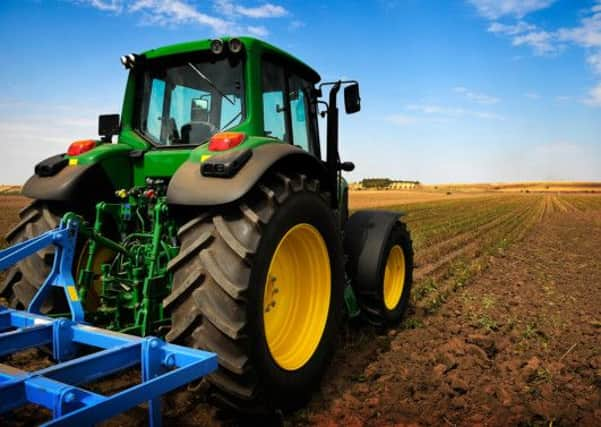Landlines: Sometimes banks right to say it’s over


In the way these stories usually develop we’ll probably find that other banks are alleged to have been equally tough. Certainly much anecdotal evidence from farmers in the past few years of financial pain has been that banks have squeezed borderline account holders until the pips squeak.
I say “anecdotal” because in public the farmers’ unions have protested about such treatment of their members and the banks’ spokesmen and women have replied soothingly that squeezing, threatening and foreclosing is not their style. No names, because few of us in that position would want the publicity.
Advertisement
Hide AdAdvertisement
Hide AdUnfortunately, the same is true of other farming issues that generate a lot of heat and few facts, such as rents and tenancies and bad treatment of their suppliers by supermarkets. No one wants to make their own problem worse by being identified specifically and the result is emotion and allegations fed by anecdotal anonymity. Only the occasional high profile court case, such as we’ve had this year about tenancy disputes, brings individual details into the open. Then we often find that the case is not as one-sided as it seemed.
That is not – perish the thought – to defend landowners, giant retailers and bankers. But we have to recognise that sometimes banks are right to take the hard decision about a business, any business, and say it has reached the end of its road. Obviously the person or persons running that business will seldom see it that way. It’s human nature to believe that we just need one more chance to turn things round and take it badly when we don’t get it.
We also have to recognise that sometimes when in a mess it is our own fault and that is probably one of the hardest things in life to do. It’s also probably one of the distinguishing features between those who succeed and those who don’t, between those who concentrate on making their business successful by their own efforts and those who lose time and waste effort by arguing for more government support and a more sympathetic banker.
Allan Wilkinson, head of agriculture at HSBC, more or less said that recently. He said that the difference between the best, most successful, farms and the worst used to be large: “Now it is enormous.” That didn’t mean that big was always best, it does mean that many farmers don’t push themselves hard enough in the right direction, to be “better than you were yesterday” at what they do.
Advertisement
Hide AdAdvertisement
Hide AdThere was a spot of management-speak and American gung-ho motivational speaker in his remarks to a London conference, but also some home truths: “Benchmarking and budgeting are vital, yet so many businesses don’t do it. It’s called survival of the fittest.” And: “Be adaptable and flexible – or extinct.”